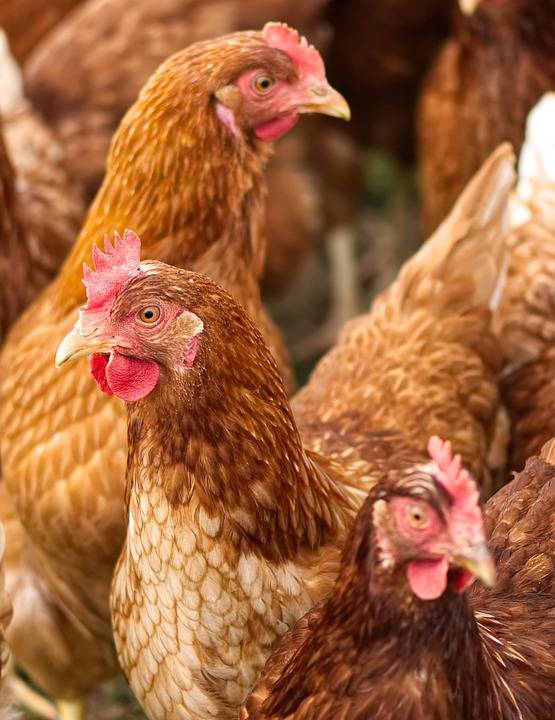Introduction
The poultry industry is a vital sector in the global food system, providing a significant source of protein for billions of people. To ensure safety, quality, and sustainability, various certifications have emerged that impact trade dynamics. This report delves into the top 10 poultry industry certifications, examining their significance, requirements, and influence on international trade.
1. GlobalG.A.P.
GlobalG.A.P. (Good Agricultural Practices) is a widely recognized certification for agricultural products, including poultry. It emphasizes safe and sustainable farming practices.
Requirements
To achieve GlobalG.A.P. certification, producers must adhere to stringent guidelines concerning food safety, environmental impact, and worker welfare. This includes proper documentation, traceability of products, and responsible use of resources.
Impact on Trade
GlobalG.A.P. certification enhances market access, particularly in Europe, where consumers are increasingly demanding sustainably sourced products. Companies with this certification often enjoy a competitive advantage, leading to increased sales and market share.
2. USDA Organic
The USDA Organic certification signifies that poultry products are produced without synthetic fertilizers, pesticides, or genetically modified organisms (GMOs).
Requirements
Producers must follow specific practices, including organic feed, outdoor access for birds, and adherence to strict animal welfare standards.
Impact on Trade
USDA Organic products often command higher prices in the market, appealing to health-conscious consumers. The certification opens doors to premium markets, particularly in North America, where organic food sales reached approximately $52.5 billion in 2021.
3. Animal Welfare Approved (AWA)
The AWA certification focuses on the humane treatment of animals in farming practices, which is increasingly important to consumers.
Requirements
Producers must comply with rigorous animal welfare standards, including outdoor access, proper diets, and low stocking densities.
Impact on Trade
With rising consumer awareness regarding ethical treatment of animals, AWA certification can significantly enhance brand loyalty and sales, particularly in markets like the U.S. and Europe.
4. Certified Humane
The Certified Humane program is designed to ensure that animals are raised in environments that meet their behavioral and physical needs.
Requirements
Producers must provide adequate space, shelter, and veterinary care, ensuring that the animals are not subjected to stress or abuse.
Impact on Trade
Certified Humane products are increasingly sought after by consumers, leading to enhanced marketability and potentially higher profit margins.
5. ISO 22000
ISO 22000 is an international standard for food safety management systems.
Requirements
It requires organizations to demonstrate their ability to control food safety hazards in order to ensure that food is safe for consumption.
Impact on Trade
ISO 22000 certification can facilitate international trade by providing assurance to stakeholders regarding food safety, thus reducing barriers to market entry.
6. Halal Certification
Halal certification ensures that poultry products meet Islamic dietary laws.
Requirements
Producers must comply with specific slaughtering practices and ensure that no prohibited substances are present in the products.
Impact on Trade
With a significant Muslim population globally, Halal certified products access a vast market segment, particularly in regions like the Middle East and Southeast Asia, where demand for Halal food is rapidly increasing.
7. BRC Global Standards
The British Retail Consortium (BRC) Global Standards provide a framework for companies to manage product safety, integrity, legality, and quality.
Requirements
Companies must implement a robust quality management system and undergo regular audits to maintain their certification.
Impact on Trade
BRC certification is highly regarded in the UK and Europe, facilitating trade and enhancing consumer trust in certified products.
8. SQF Certification
Safe Quality Food (SQF) certification is a globally recognized food safety management certification program.
Requirements
Producers must demonstrate their commitment to food safety and quality through comprehensive documentation and audits.
Impact on Trade
SQF certification is often a prerequisite for suppliers wishing to do business with major retailers, thus enhancing their market access and business opportunities.
9. Non-GMO Project Verified
This certification indicates that products are free from genetically modified organisms.
Requirements
Producers must undergo rigorous testing and product verification to ensure compliance.
Impact on Trade
With growing consumer demand for Non-GMO products, this certification opens up lucrative markets, especially among health-conscious consumers in North America.
10. Marine Stewardship Council (MSC)
Although primarily focused on seafood, the MSC standard can influence poultry producers who engage in sustainable feed sourcing, particularly fishmeal.
Requirements
Producers must adhere to sustainable fishing practices and demonstrate a commitment to environmental stewardship.
Impact on Trade
Companies that are MSC certified can leverage their commitment to sustainability in their marketing strategies, enhancing their appeal in eco-conscious markets.
Conclusion
The poultry industry is increasingly shaped by certifications that promote sustainability, safety, and ethical practices. These certifications not only enhance product quality and consumer trust but also have significant implications for trade dynamics. As consumer preferences continue to evolve, the importance of compliance with these certifications will only increase, influencing market access and profitability for poultry producers worldwide.
[Read More: Global Poultry Industry Report 2025: Trends, Challenges, and Future Outlook Across the Value Chain]




